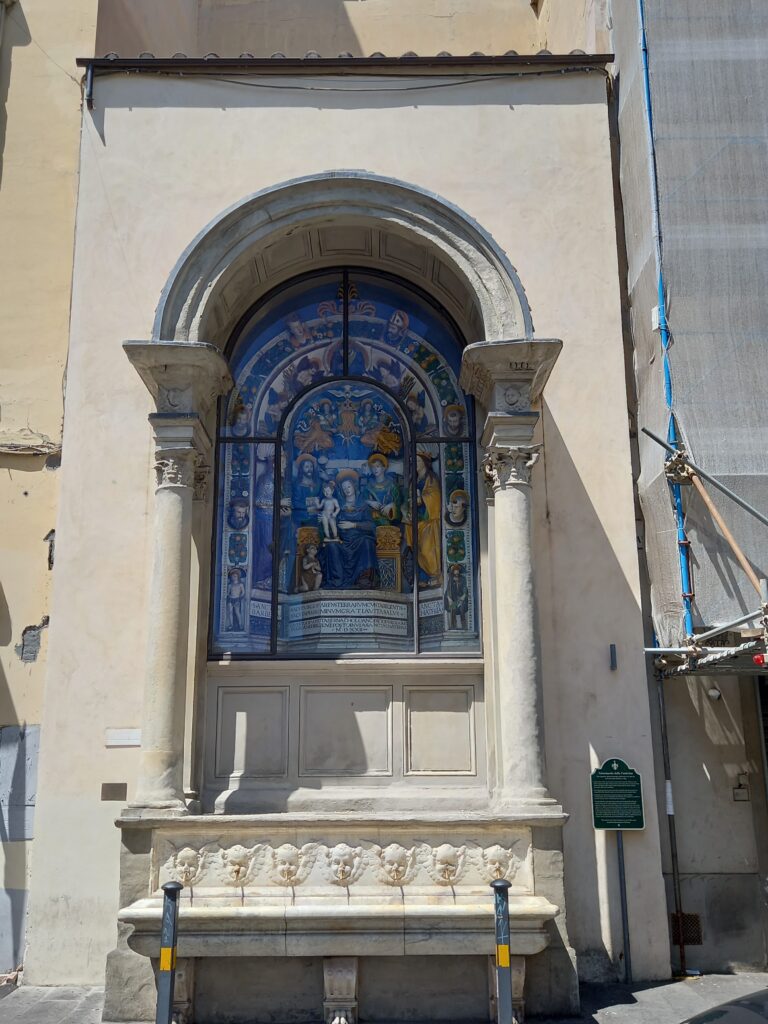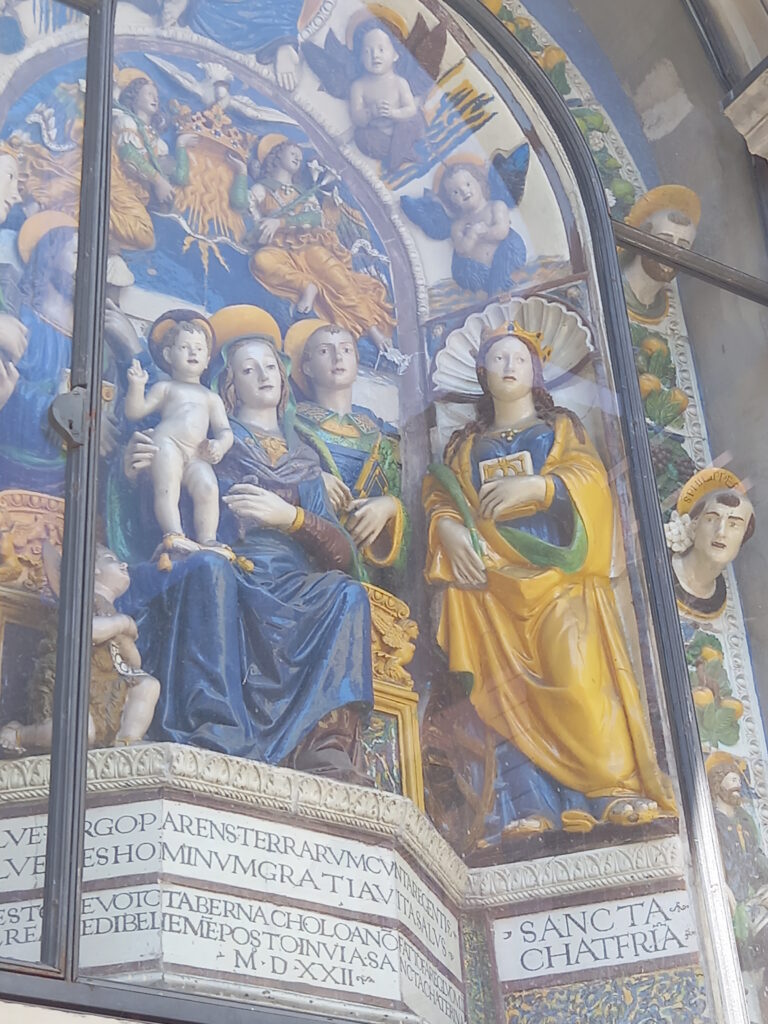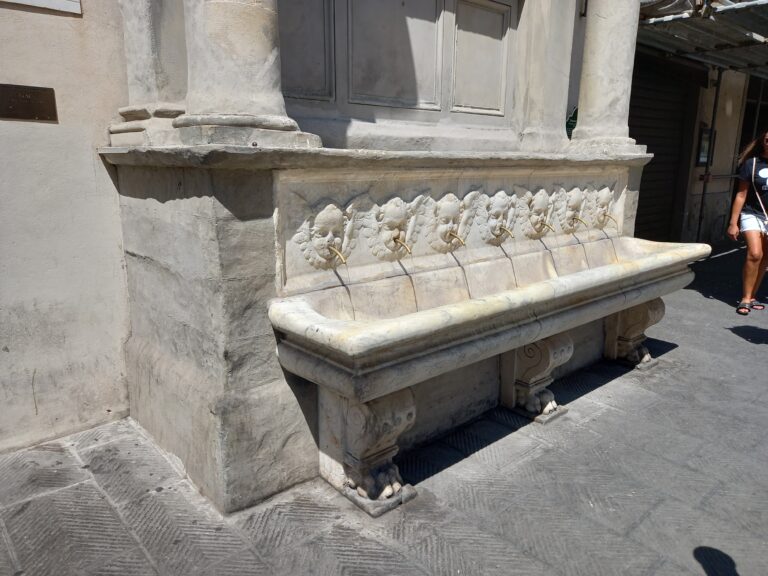via Nazionale
"the Fonticine tabernacle"
"the Fonticine tabernacle"
the tabernacles of florence
THE TABERNACLE
Madonna col Bambino
The seated Virgin holds the blessing Child on her knees, while a lively San Giovannino kneels before them. On either side of the group of Madonna and Son, immediately behind the throne, are depicted San Giacomo Maggiore and a deacon saint, almost certainly Lorenzo and, in two niches, Santa Barbara and Santa Caterina d’Alessandria, the latter the titular of the street where the Kingdom of Bethlehem (Beliemme, as the dedicatory epigraph reads) - one of the "Potenze" or popular associations of entertainment, commissioning the tabernacle.
Eterno Padre e Angeli
In the lunette, two angels flank the dove of the Holy Spirit, radiant, while at the top of the splay, accompanied by four little angels, is depicted The Eternal Father, bending protectively over the group of the Madonna and Child. And again, in the rich external framing, between the wreaths of fruit and foliage customary to robbian repertoire, sprout the heads of various saints, among whom San Domenico (on the left, indicated by a star on his forehead) and Bishop Zanobi (above on the right) appear recognizable.
Tabernacle
The artifact is undoubtedly one of the most monumental and architecturally conspicuous Florentine tabernacles. The base consists of a marble basin supported by three corbels shaped like lion's paws. Above it, from a slab of the same material, seven angelic protomes pour water jets into the basin (which earned the tabernacle the popular name of the "Fonticine"). From a stone sill rise two columns resting on two pilasters behind, all provided with capitals of a composite order. On the dado above the capitals are carved angel heads. The overlying frame supports a round arch, covered with tiles. At the base of the framing, in as many niches, are inserted statuettes of San Sebastiano (left) and San Rocco (right), both invoked and venerated as protectors from plagues.
THE STREET
Via Nazionale
The street was given its present name only in 1859; previously it was divided into shorter sections, each with its own name. The first section was called via Tedesca because of a hospital of the Teutonic Knights. Next was Via di Cafaggio, which extended to Via dell'Ariento, and Via di Santa Caterina to Via Guelfa. Finally, there was Via della Robbia, so called because the workshop of the famous family of sculptors and ceramists was located there. In 1864 the so-called “Politeama Nazionale or Arena Nazionale", an open-air theater within the Franchetti garden, was built at the top of the street.
AUTHOR
Giovanni Della Robbia
(Florence 1469 - 1529/30) Giovanni Della Robbia, son of Andrea, led the family manufactory to its greatest productive expansion and popularity, inserting new decorative motifs and color solutions into the sober compositions of the patriarch Luca and his father. However, his works lost expressive force and perspectival skill compared with his predecessors', even though the standard was still high.
The sculptor
(Florence 1469 - 1529/30) Very close to this composition there is a Nativity, datable to 1521 and signed by Giovanni, formerly in San Girolamo delle Poverine and now in the Museo nazionale del Bargello (“National Museum of the Bargello”), where the figure of the Eterno even seems to be taken from the same matrix as the one in our tabernacle (which, moreover, is not unusual in the very skillful productive organization of the Della Robbia workshop).
Tibdit
The tabernacle has two inscriptions, the first is the dedicatory inscription, an elegiac couplet composed in good latin, which sounds like a solemn greeting to the Virgin. The second, written in vernacular, is a reminder of the commission and the year of execution.
GALLERY

Tabernacle
Via Nazionale

Detail: Madonna col Bambino
Via Nazionale

Detail: Fountains ("Fonticine")
Via Nazionale



